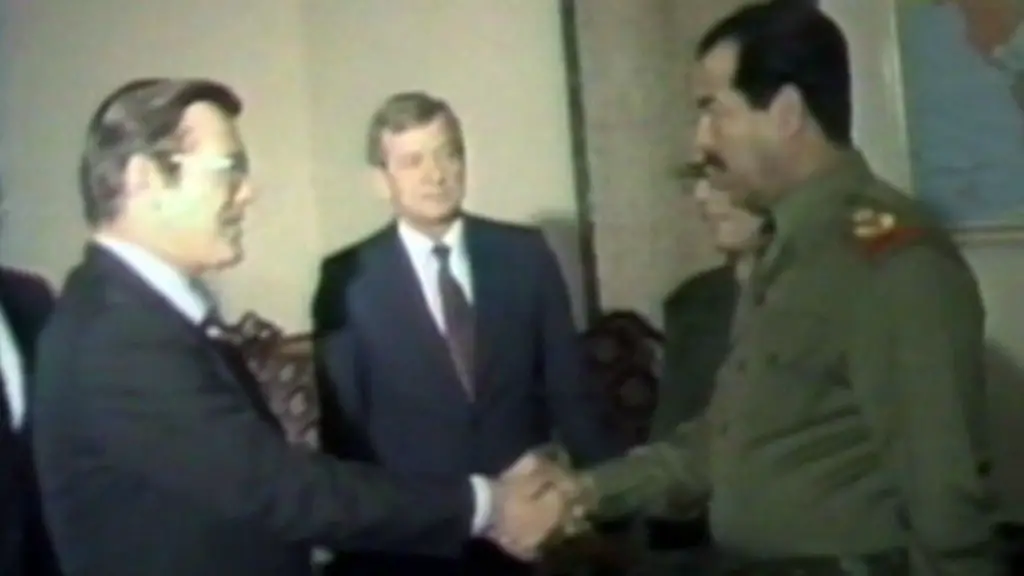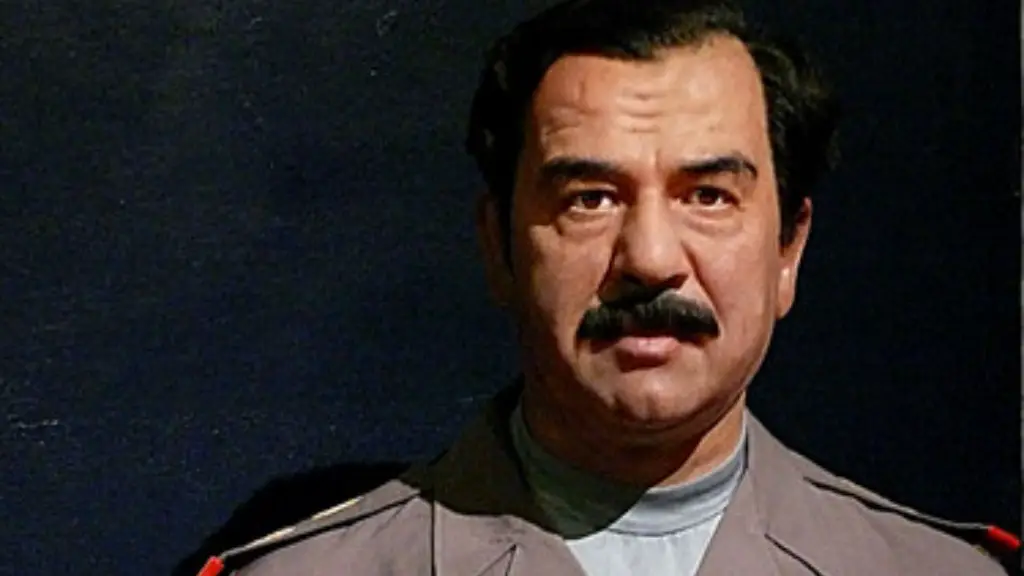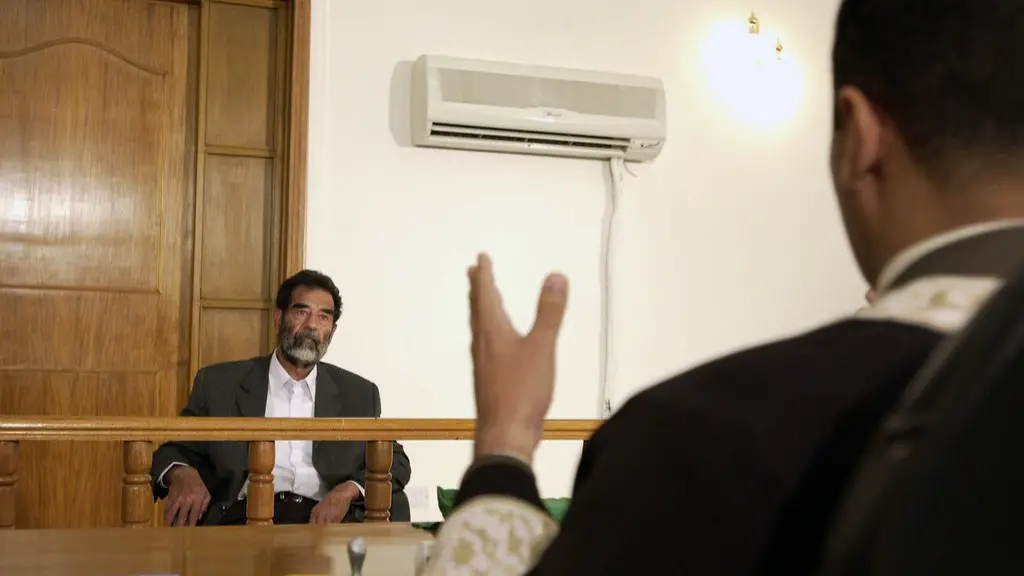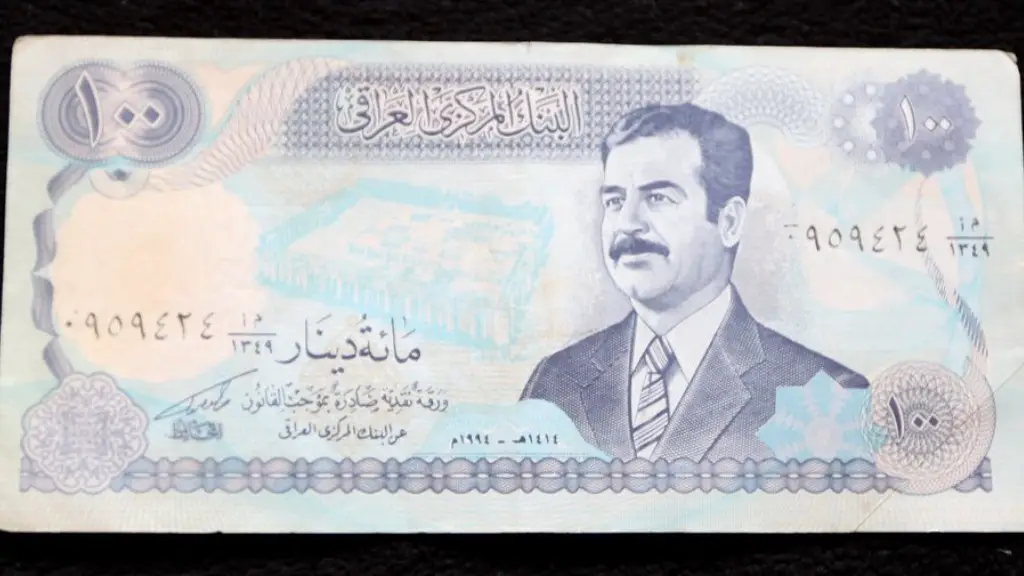Saddam Hussein was the leader of Iraq from 1979 until 2003, when he was overthrown by a U.S.-led coalition. Al Qaeda is a terrorist organization founded by Osama bin Laden in the late 1980s. There is no clear evidence that Hussein and al Qaeda were ever formally connected, but there were reports of contacts between Iraq and al Qaeda in the 1990s.
There is no definitive answer to this question as the two groups operated in secrecy and it is difficult to obtain concrete evidence of any connection between them. However, some intelligence analysts believe that there was at least a loose relationship between Saddam Hussein’s regime and al Qaeda, possibly involving the exchange of money and weapons.
What is the origin of Al Qaeda in Iraq?
Al-Qaeda in Iraq was a militant Islamist group active in Iraq from 2004 to 2013. The group was founded by Abu Musab al-Zarqawi, a Jordanian-born militant who had already been leading insurgent attacks in Iraq. Zarqawi pledged his group’s allegiance to Osama bin Laden in return for bin Laden’s endorsement as the leader of al-Qaeda’s franchise in Iraq.
The group was responsible for numerous terrorist attacks in Iraq, including the 2003 Canal Hotel bombing in Baghdad that killed UN envoy Sergio Vieira de Mello, as well as numerous suicide bombings and attacks on Iraqi security forces and civilians. In 2006, the group changed its name to “Islamic State of Iraq” in an attempt to broaden its appeal, but this was largely unsuccessful.
The group was eventually defeated by a combination of Iraqi security forces and US-led coalition forces, and its last leader, Abu Bakr al-Baghdadi, was killed in a US military raid in 2019.
Hussein’s regime was characterized by strong repression of internal dissent and international aggression—including the Iran–Iraq War and the invasion of Kuwait. He also developed a tenuous relationship with the United States, who supported him during the Iran–Iraq War.
Did the US ever support Saddam Hussein
The US Defense Intelligence Agency provided combat planning assistance to Saddam Hussein’s military, including satellite pictures and other battlefield intelligence. More than 60 DIA officers were involved in the effort.
The Iraq War was a devastating conflict that lasted for over a decade. Tens of thousands of people were killed, wounded, or affected by the conflict. More than two million people were displaced, as well. The primary rationalization for the war was articulated by a joint resolution of the United States Congress known as the Iraq Resolution. The US claimed the intent was to “disarm Iraq of weapons of mass destruction, to end Saddam Hussein’s support for terrorism, and to free the Iraqi people”. However, the war did not achieve these objectives, and instead led to immense suffering and destruction.
What religion did Al Qaeda believe in?
Al-Qaeda believes that the Quran should be the only source of authority when it comes to governing. This means that sharia law should be the only law that is followed and that secular government is not acceptable. This is because Al-Qaeda believes that man-made laws are contrary to Islamic faith.
In order to write a good note on this topic, you will need to research the various types of transportation available and their pros and cons. You will also need to consider the needs of your specific audience and what type of transportation would be best for them. Some factors you may want to consider include cost, efficiency, and environmental impact.
What good things did Saddam Hussein do?
Saddam’s national infrastructure campaign made significant progress in developing Iraq’s roads, mining industry, and other key industries. This campaign helped improve Iraq’s energy production and distribution, making electricity more widely available throughout the country. This investment in infrastructure helped Iraq’s economy to grow and prosper during Saddam’s rule.
The sectarian violence that has plagued Iraq since the 2003 US-led invasion has had a profound impact on the country’s Sunni population.
Prior to the invasion, Iraq was ruled by a Sunni-dominated regime that was hostile to the country’s Shia and Kurdish minorities. Since the toppling of Saddam Hussein, the Sunni population has been marginalized and has been the target of widespread sectarian violence.
The recent increase in violence in Iraq has led to a further deterioration of the security situation for the Sunni population. While the Iraqi government has been able to provide some protection for the Sunni community, the overall level of violence remains high. This has led many Sunnis to flee the country, exacerbating the sectarian divide within Iraq.
What did Saddam say when he died
Sami al-Askari, a witness to Saddam Hussein’s execution, said that Saddam Hussein shouted “Allahu Akbar” (God is great) and “The Muslim Ummah will be victorious and Palestine is Arab!” before the rope was put around his neck. This shows that Saddam Hussein was still committed to his Islamic faith and the Palestinian cause even in his final moments.
It is absolutely heartbreaking to think about the thousands of people who lost their lives in Halabja. It is even more upsetting to know that the chemical weapons used in the attack were supplied by Britain, France, and the US. These countries should be held accountable for their role in this tragedy.
Was Saddam a Soviet ally?
Although Iraq was a close ally of the USSR, the two countries signed a Treaty of Friendship and Cooperation in1972 in order to help each other under threat and to avoid entering hostile alliances against one another. This showed that both countries were willing to work together despite their differences.
The Iran-Iraq war lasted for eight years and was one of the bloodiest conflicts in recent history. American involvement in the war further exacerbated the already bloody conflict and contributed to lasting political insecurity in the region. Iran’s support of the Kurds was just one part of Saddam Hussein’s concern. The war led to the death of hundreds of thousands of people and the displacement of millions more. It also destroyed much of the infrastructure in both countries.
Who owns Iraqi oil now
The oilfield is jointly owned by Iraq (476%), BP (464%), and CNPC (6%). It is operated by BP and contracted to CNPC and SOMO under the Iraq Producing Field Technical Service Contract (PFTSC).
The United States imported an average of 157,000 barrels of petroleum per day from Iraq in 2021. This accounted for approximately 9% of total US petroleum imports. Iraq was the fifth largest source of imported petroleum for the United States in 2021.
Was U.S. invasion of Iraq legal?
There is no doubt that the legality of the invasion and occupation of Iraq has been widely debated. The then United Nations Secretary-General Kofi Annan said in September 2004 that: “From our point of view and the UN Charter point of view, it [the war] was illegal.”
Many arguments have been made both for and against the legality of the war. Those who argue that the war was illegal often point to the fact that it was not authorised by the UN Security Council. Others argue that, even though the war may not have been authorised by the UN, it was still legal under international law.
It is clear that the legality of the war is still a highly contentious issue. What is less clear is what the final outcome of all this debate will be.
There is a clear difference between the objectives of Al-Qaeda and the Taliban. Al-Qaeda is fighting for a global jihad, while the Taliban is focused on taking back Afghanistan. The fighters for Al-Qaeda are mostly urban and have little religious training, while the Taliban is mostly made up of rural fighters with more religious training. This difference in objectives and makeup is important to keep in mind when thinking about the two groups.
Why did the FBI want bin Laden
The FBI placed Osama bin Laden on its Ten Most Wanted Fugitives list in June 1999, after he was connected to the 1998 attacks in East Africa. Al Qaeda, which he led, continued its violent attacks into the new century.
In the Middle East, al Qaeda did not do well in 2022. Its strongest affiliate was Jabhat al Nusra from 2013 until 2016. But in 2016, Jabhat al Nusra left al Qaeda and later changed its name to Hayat Tahrir al Sham (HTS). HTS has ruled much of Idlib Province since 2017.
Conclusion
There is no definitive answer to this question as both Saddam Hussein and al Qaeda were known to be secretive and non-cooperative with Western intelligence agencies. However, there is some evidence that the two may have been connected. In particular, Saddam Hussein is thought to have provided safe haven and financial support to al Qaeda operatives in the 1990s.
There is no definitive answer to this question as the available evidence is conflicting and inconclusive. However, it is clear that Saddam Hussein and al Qaeda had some sort of connection, whether it was a close working relationship or simply a mutual hatred of the United States.





